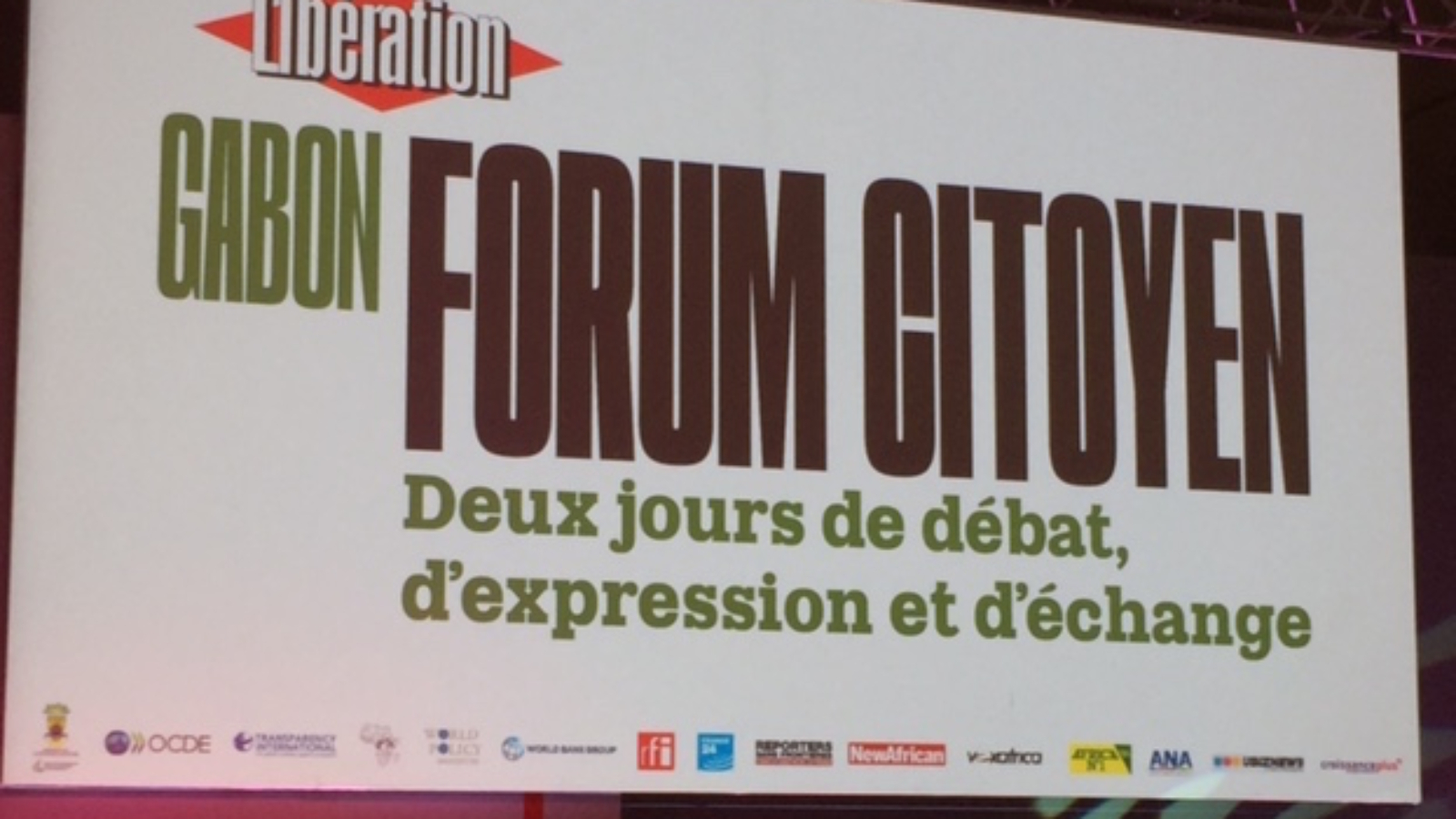By David Stevens
In a time when business in the U.S. can seem centered either on consumerism or convenience and where politics is often defined by fear, the scope of the issues discussed at Libération’s Forum Citoyen Gabon, held this past weekend, was both inspiring and immense. What does it mean to be a citizen? Can there be growth for everyone? What should define the relationship between France and Africa in the 21st century? Can entrepreneurs help mold Africa into the global force that is has the potential to be? Or, will a demographic youth bulge get ahead of education and employment, and send the continent into decades of turmoil?
The forum addressed these issues through a series of eight debates, held in the conference center at Libreville’s Stade de l’Amitié, a soccer stadium which has played host to the 2012 Africa Cup of Nations final. Six thousand tickets had been made available free to the public for the two-day event, and on the first day, the conference center was filled near capacity for what would be 12 hours of panels and discussions.
The first debate, “Elus citoyens: Qui Décide? Les defies de la démocrasation” [Elected citizens: Who decides? The challenges of democratization] kicked off the Forum, as civil society activists Georges M’Paga and Marc Ona Essangui traded accusations with Gabonese government representatives, Jean-Valentin Leyama and Alain-Claude Billie Bi Nzé. While much of the discussion centered on the nature and openness of the Gabonese government and quality of Gabonese democracy, it did, at times, devolve into political point scoring with the activists being accused of being politicians “disguised as civil society.” But the presence of both government and civil society representatives, as well as Africa Director for Transparency International, Chantal Uwimana, and effective moderation meant that substance wasn’t lost in the name of politics.
In a direct response to the accusation that he was speaking as a member of the opposition Mr. Essangui, stepped back to look at the larger issue, saying “the system has to change…when we have alternatives, true alternatives, then I will be on your side.” He went on to note that “[the government] considers the citizens little sheep. Why? Because [they] only ask us to vote,” and suggested “citizens need to be at the center of the debate.”
Importantly, the discussion was not left to the panelists and moderators. Half of the allotted time for each debate (and often more, as vigorous talks were allowed to exceed their allotted time) was reserved for audience comments and questions. This question period turned out to be the heart of each debate as audience members were well informed and excited for the opportunity to address both officials and experts.
Audience members repeatedly challenged their ministers and officials – not with baseless allegations or rumor, but with tales of real life experiences and well researched statistics the reflected Gabonese reality as it actually is, and not as it is portrayed by those in power. On one occasion, an audience member pulled up a panelist’s previous statements on his cell phone and pointedly asked for an explanation of apparent discrepancies with her present position.
The audience did not seem to have, on the whole, a singular political view with both pro-government and pro-opposition positions being vigorously applauded where political positions were being discussed. For example, in a debate entitled “Journalistes en Afrique: Lé défi de l’indépendance” [Journalists in Africa: the Challenge of Independence”], the audience appeared decidedly mixed on the question of the limits of journalistic freedom. Some in the audience believed that journalists must be absolutely free to write as they see fit, while others wanted to limit journalists to reporting only “what they could prove.” What was clear is that the audience, many of whom were young journalists themselves, were grappling with the balance between exposition and muckraking, and looking to define a Gabonese sense of how far was too far when reporting on politicians. The questions asked thoughtfully blended ideological and practical considerations, leaving the sense that while the issue remained unsettled, the gravity of the decision was understood by all.
In what was perhaps the most touching moment involving an audience member, a Gabonese man from the rural eastern region went to the mic during a debate on youth in Africa. Noting that the tabled suggestions for youth development all centered on solutions for urban youth, he asked the panel and the audience to address the needs of rural communities by telling the story of children in his region who turn to elephant poaching for money. When the moderator asked, “isn’t that illegal?”, he responded by breaking down the cost of buying the gun from neighboring Congo, the prices of various elephant tusks, and the lack of other opportunities in the region. In doing so, he humanized the seemingly black and white issue of poaching. And while the initial response of both the audience and moderators was one of surprise and laughter, by the end of his story it was clear that he had made a lasting impression on his urban counterparts.
While the collection of experts, politicians, and business people drawn to the Forum was impressive, the event was about the audience. And if the audience that attended the Forum was at all indicative of ways in which Gabon and other African countries can engage tough issues, then the future should be bright indeed.
*****
*****
David Stevens is the Director of the Program for African Thought and a fellow at the World Policy Institute. He attended and spoke at the Libération forum.
[Photos courtesy of David Stevens]
